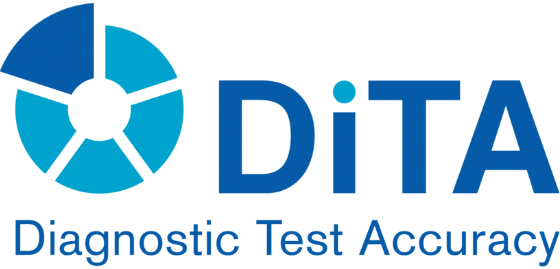Use the Back button in your browser to see the other results of your search or to select another record.
Diagnosing carpal tunnel syndrome: diagnostic test accuracy of scales, questionnaires, and hand symptom diagrams -- a systematic review
Dabbagh A, MacDermid JC, Yong J, Macedo LG, Packham TL
The Journal of Orthopaedic and Sports Physical Therapy 2020 Nov;50(11):588-650
systematic review
OBJECTIVE: To summarize and evaluate research on the accuracy of clinical diagnostic scales, questionnaires and hand symptom diagrams/maps (HSD) used for diagnosis of carpal tunnel syndrome (CTS). DESIGN: Systematic review of diagnostic test accuracy. LITERATURE SEARCH: A comprehensive literature search of Medline, CINAHL, and Embase databases was conducted on January 20, 2020. STUDY SELECTION CRITERIA: Studies that assessed at least one diagnostic accuracy property of the scales, questionnaires and HSD for the diagnosis of CTS. DATA SYNTHESIS: PRISMA guidelines were followed. Risk of bias and applicability was assessed using the QUADAS-2 tool. Diagnostic accuracy properties were summarized. RESULTS: Out of 5,552 citations, 21 articles met the inclusion criteria. Twelve articles reported on the diagnostic accuracy of scales and questionnaires: Bland questionnaire, Kamath and Stothard questionnaire, CTS-6, Boston carpal tunnel questionnaire, Wainner clinical prediction rule, Lo carpal tunnel prediction rule. Positive likelihood ratios (LRs) ranged from 0.94 for Boston carpal tunnel questionnaire to 10.5 for CTS-6 scale, and negative LRs ranged from 1.05 to 0.05 for the same diagnostic tools. Nine studies were identified on the diagnostic accuracy of Katz and Stirrat HSD. Positive and negative LRs ranged from 1.42 to 8, and from 0.78 to 0.05, respectively. Only four studies had high methodologic quality. CONCLUSION: Limited evidence supports high accuracy of CTS-6, Kamath and Stothard questionnaire, and Katz and Stirrat HSD. Other scales have lesser and more conflicting evidence. Further high-quality studies are necessary to examine the diagnostic accuracy of these tests to assist ruling in or out CTS.
Full text (sometimes free) may be available at these link(s): ![]() help
help


